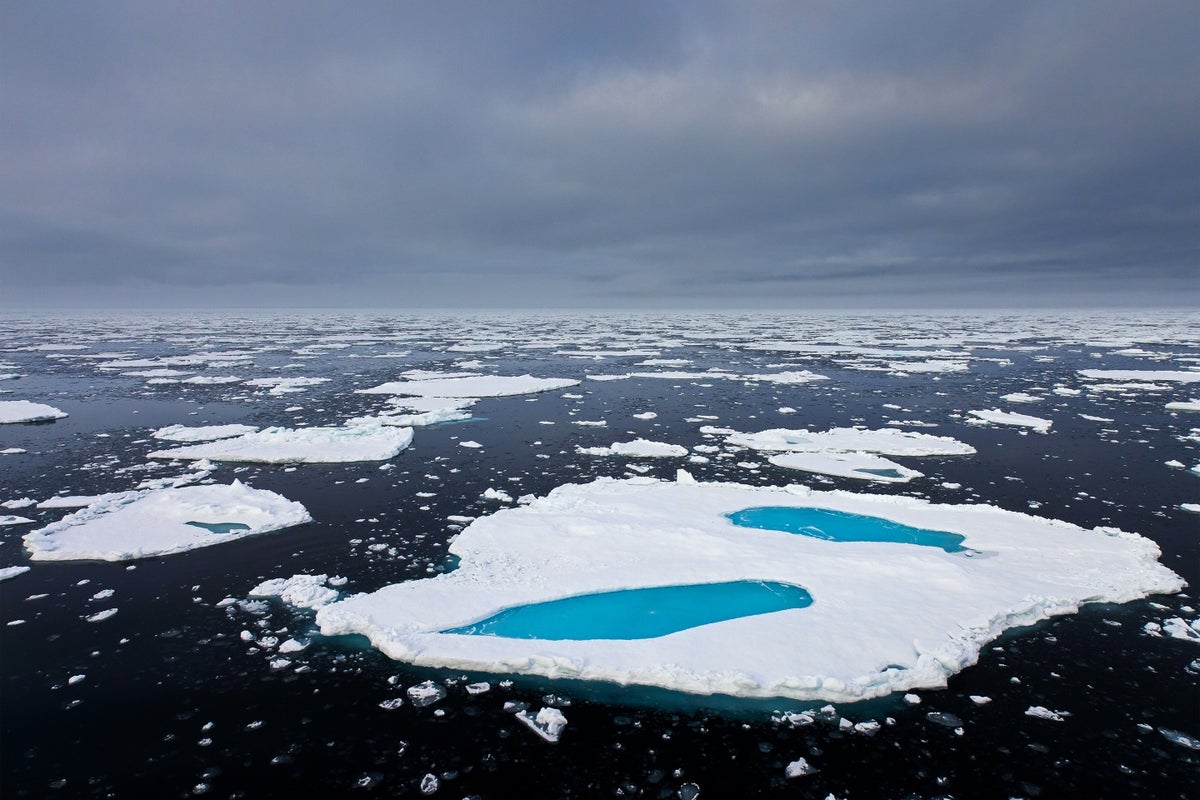Now Reading: Polar Geoengineering Sparks Debate Amid Accelerating Ice Melt
-
01
Polar Geoengineering Sparks Debate Amid Accelerating Ice Melt
Polar Geoengineering Sparks Debate Amid Accelerating Ice Melt

fast Summary
- Polar Science Divide: Scientists are debating geoengineering interventions to counteract polar ice loss caused by rapid climate change. Two opposing papers were published addressing this issue.
- Geoengineering Techniques: Proposed methods include thickening sea ice, injecting aerosols in the stratosphere, installing seabed curtains to deflect warm water from glaciers, drilling glaciers to pump meltwater, and ocean iron fertilization.
- Concerns Against Geoengineering:
– Techniques deemed impractical or unachievable at large scales (e.g., deploying one million pumps annually for ten years just for partial Arctic sea ice coverage).
– Potential harm to fragile ecosystems (e.g., disrupting nutrient cycles or ozone layer depletion).
– Risk of “moral hazard,” reducing urgency for emission cuts among policymakers and public.
- Supportive Arguments:
– Some researchers argue for urgent exploration of geoengineering risks versus benefits due to looming climate tipping points.
– Indigenous groups show mixed reactions; some trials gained their approval while others faced protests over lack of proper consultation.
- Polar Ice’s Global Impact: Accelerating polar warming threatens ecosystems globally and impacts two billion people relying on Himalayan glacier-fed water.
Indian Opinion Analysis
The intensifying dialogue between polar scientists highlights the global stakes of climate interventions as Earth’s warming accelerates. Geoengineering proposals like thickening sea ice or aerosol injection spark controversies due to uncertainties regarding feasibility, effectiveness, and unintended ecological consequences.Critics rightly emphasize that prioritizing emission reductions remains essential even if geoengineering research advances.
India’s dependence on Himalayan glaciers as a key water source underscores its vulnerability amid rising temperatures. While the debates initially target polar regions, broader international cooperation on mitigation strategies-including adapting such technologies responsibly-will influence India’s environmental stability. Importantly, support for open public debate is crucial in weighing ethical considerations alongside scientific projections without compromising immediate efforts toward lasting development goals.






















